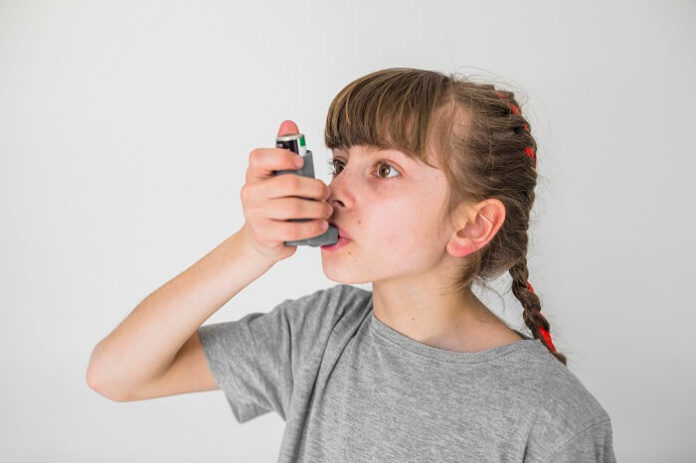Childhood asthma has been linked to challenges in memory and other cognitive functions, according to findings from an observational cohort study.
In a longitudinal analysis, researchers found that children with earlier onset of asthma exhibited slower improvements in memory, as assessed by the Picture Sequence Memory Test, compared to children without asthma (β = -0.17, 95% CI -0.28 to -0.05, P=0.01). Simona Ghetti, PhD, from the University of California Davis, and her team reported these. In contrast, no significant difference in memory improvements was observed for children with later-onset asthma compared to their peers without asthma.
In a cross-sectional analysis, children with asthma scored lower in several cognitive domains, including episodic memory (β = -0.09, 95% CI -0.18 to -0.01, P=0.04), processing speed (β = -0.13, 95% CI -0.22 to -0.03, P=0.01), and inhibitory control and attention (β = -0.11, 95% CI -0.21 to -0.02, P=0.02).
“This study provides new evidence that children with asthma show altered memory function during development, alongside impacts on other cognitive areas,” the authors wrote. “These results underscore the importance of further investigation to fully understand how asthma affects neurodevelopment.”
As reported by medpagetoday, the researchers noted that the underlying pathophysiology of asthma remains unclear. However, rodent studies have shown that asthma can lead to neural damage in the hippocampus. Previous studies have also indicated that children receiving high doses of corticosteroids for asthma treatment demonstrated reduced verbal memory compared to those on lower doses. While earlier studies linked asthma with cognitive difficulties, they often did not account for socioeconomic factors that could influence both asthma prevalence and cognitive development.
The findings from Ghetti and her team align with prior research. They suggested that developing asthma at a young age could disrupt neurodevelopment, particularly in brain regions such as the hippocampus, which are susceptible to environmental influences and ongoing plasticity. Prolonged inflammation from longer asthma duration might contribute to neuroinflammatory responses that impair neural processing and manifest as cognitive dysfunction.
Farzin Irani, PhD, from AAA Neuropsychology in Malvern, Pennsylvania, commented that these findings align with her team’s meta-analysis, which first highlighted small to medium-sized global cognitive impairments associated with asthma. However, Irani pointed out that the study did not consider asthma severity or control, which are important factors as younger children often have poorer asthma management. Addressing asthma control could be a potential area for intervention, she added.
The researchers drew on data from the Adolescent Brain Cognitive Development (ABCD) Study, selecting children based on parental reports of asthma or asthma-related treatments. The study included both longitudinal and cross-sectional assessments to explore the relationship between asthma and memory.
For the longitudinal analysis, children were classified as having earlier-onset asthma if asthma indicators were reported at both baseline and 2-year follow-up. Those with later-onset asthma had indicators reported only at the 2-year mark. The cross-sectional analysis included children with asthma reported at any time, with a comparison group matched by age, sex, combined parental income, and other health factors such as allergies and bronchitis.
The longitudinal analysis included 474 children, with an average age of 10. In this group, 56% of children with earlier-onset asthma were boys, while the later-onset group was 53% girls. Racial distribution across subgroups reflected known disparities in asthma, with 48-63% identifying as white, 15-28% as Black, and 19-21% as Hispanic or Latino.
In the cross-sectional analysis, which included 2,062 children, the mean age was 12. Of those with asthma, 57% were boys compared to 46% in the control group, with racial distributions of 54-59% white, 21-27% Black, and 18-23% Hispanic or Latino.
Secondary cognitive outcomes were evaluated using the Pattern Comparison Processing Speed Test and the Flanker Inhibitory Control and Attention Test.
The study authors acknowledged limitations, such as the inability to assess asthma severity, its exact onset, or duration. Additionally, the ABCD Study was designed to examine neurocognitive development broadly and not specifically to assess associations between asthma and cognition.
























